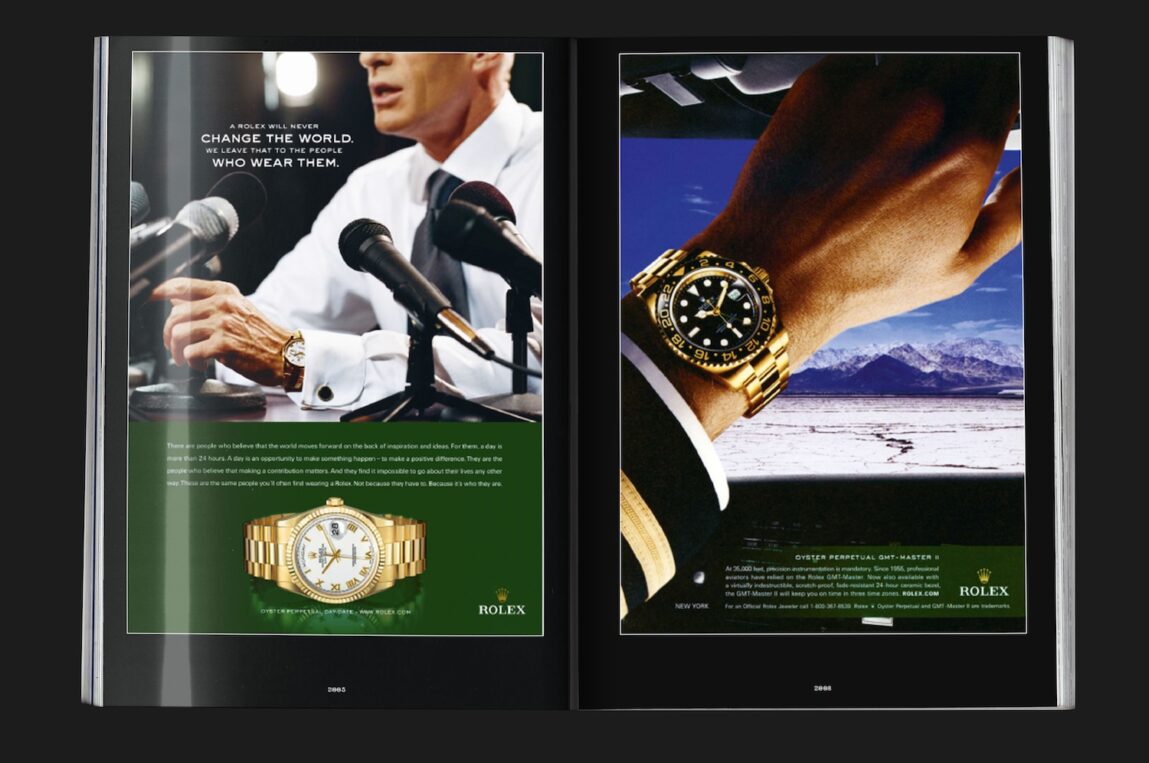Text Lejla AVDIC
Since its founding in London in 1905 by Hans Wilsdorf and its subsequent establishment in Geneva, Rolex has continuously set the standard for watchmaking by combining technical excellence, masterful precision, and innovative technology. The designs of many models that have become icons—just think of the Datejust or Submariner—have also had a significant and lasting impact on the entire watch industry time and time again. In our »Repro« series, we present some of the most legendary Rolex vintage ads of the last 100 years.
Of course, it is much more than just the outstanding quality of the products that has made Rolex a status symbol, the epitome of prestige, luxury and quite simply a chronometric legend. The almost mystical brand aura is due in particular to the perfectly orchestrated play with desirability, scarcity and an always reserved, strategically meticulous handling of information on internal company matters. Rolex is also less loud but all the more sustainable when it comes to supporting important cultural institutions, events and creative people, particularly in the fields of architecture, film and music. With the Perpetual Arts Initiative, the brand supports leading cultural venues and artists, while the mentoring program promotes up-and-coming talent and is often committed to »passing on knowledge and craftsmanship from one generation to the next« without much media coverage.
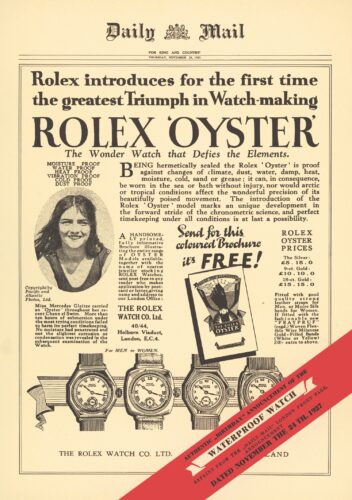
1927
In contrast, the Geneva watch manufacturer has always been much more confident and visually assertive in its public advertising—the subjects conveyed strong messages and were very specifically tailored to the zeitgeist, aesthetic trends and social developments of the respective eras. The first widely publicized advertisements of the 1920s, when Rolex launched the first waterproof chronometer, the Oyster, emphasized robustness and reliability, even under extreme conditions. And, of course, the famous example of Mercedes Gleitze, the first British woman to swim across the English Channel in 1927, wearing a Rolex Oyster.
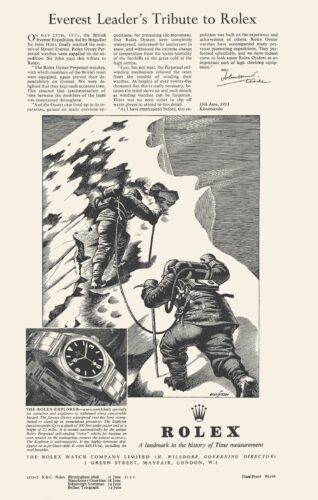
1955
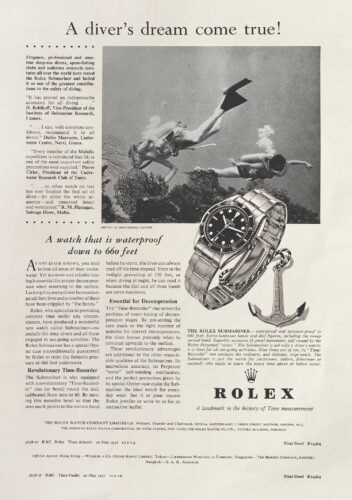
1957
The 1950s saw the launch of the Explorer campaign, inspired by the first ascent of Mount Everest in 1953, during which Sir Edmund Hillary and Tenzing Norgay wore a Rolex. Correspondingly, the brand staged itself as a reliable companion for great adventures, targeting the aspiring bourgeois society that was striving for success, adventure and individualism.
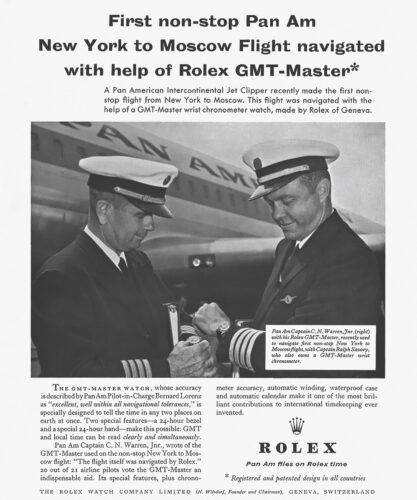
1959
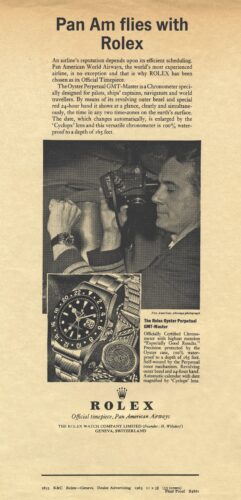
1963
Rolex advertising motifs from the 1960s and 1970s also focused on protagonists from professions that operate with technical excellence and the highest level of professionalism—professional divers, pilots and racing drivers. Iconic motifs of the GMT Master or Submariner showed the watches in a time of technological progress as precise and powerful tools favored by professionals.
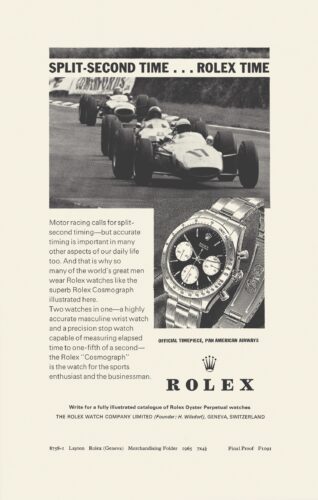
1965
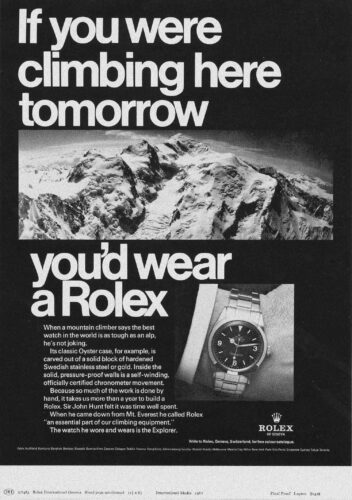
1967
As status symbols became increasingly important in society in the 1980s, Rolex also opted for much more opulent and luxurious motifs that portrayed watches as the insignia of success. The advertising messages emphasized the luxurious character of the watches and Rolex positioned itself as the choice of the elite. In particular, the Rolex Day-Date, also known as the »presidential watch«, took center stage.
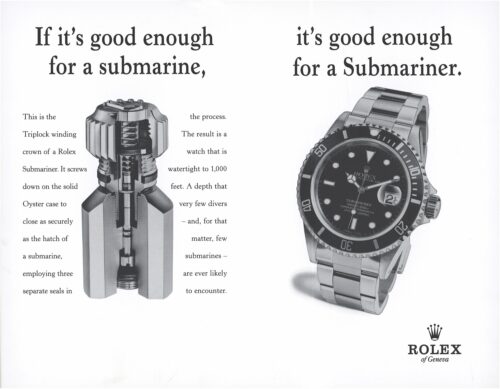
1997
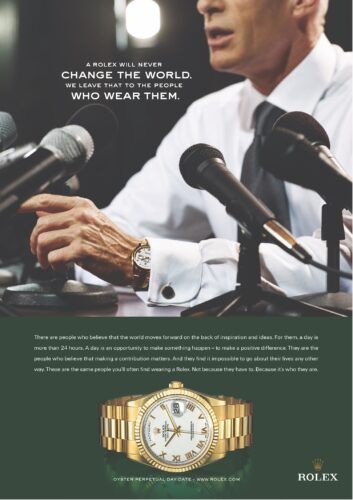
2005
To this day, both the highest technical precision, durability and the well-cultivated image as a luxury watch for the elite remain an integral part of the advertising image, but Rolex is increasingly emphasizing its role as a traditional company and highlighting values such as longevity, environmental awareness and its immensely strong links with art and culture. This flexibility and simultaneous steadfastness in communication, as well as the skillful play with discreet restraint and self-confident opulence, continues to be part of the fascination of Rolex—one of the world’s most impressive brands that will surely continue to inspire new generations of watch aficionados.
»REPRO 8 – The most iconic Rolex vintage ads« was FIRST PUBLISHED IN CHAPTER №XI »TASTEMAKERS«—WINTER 2024/25

